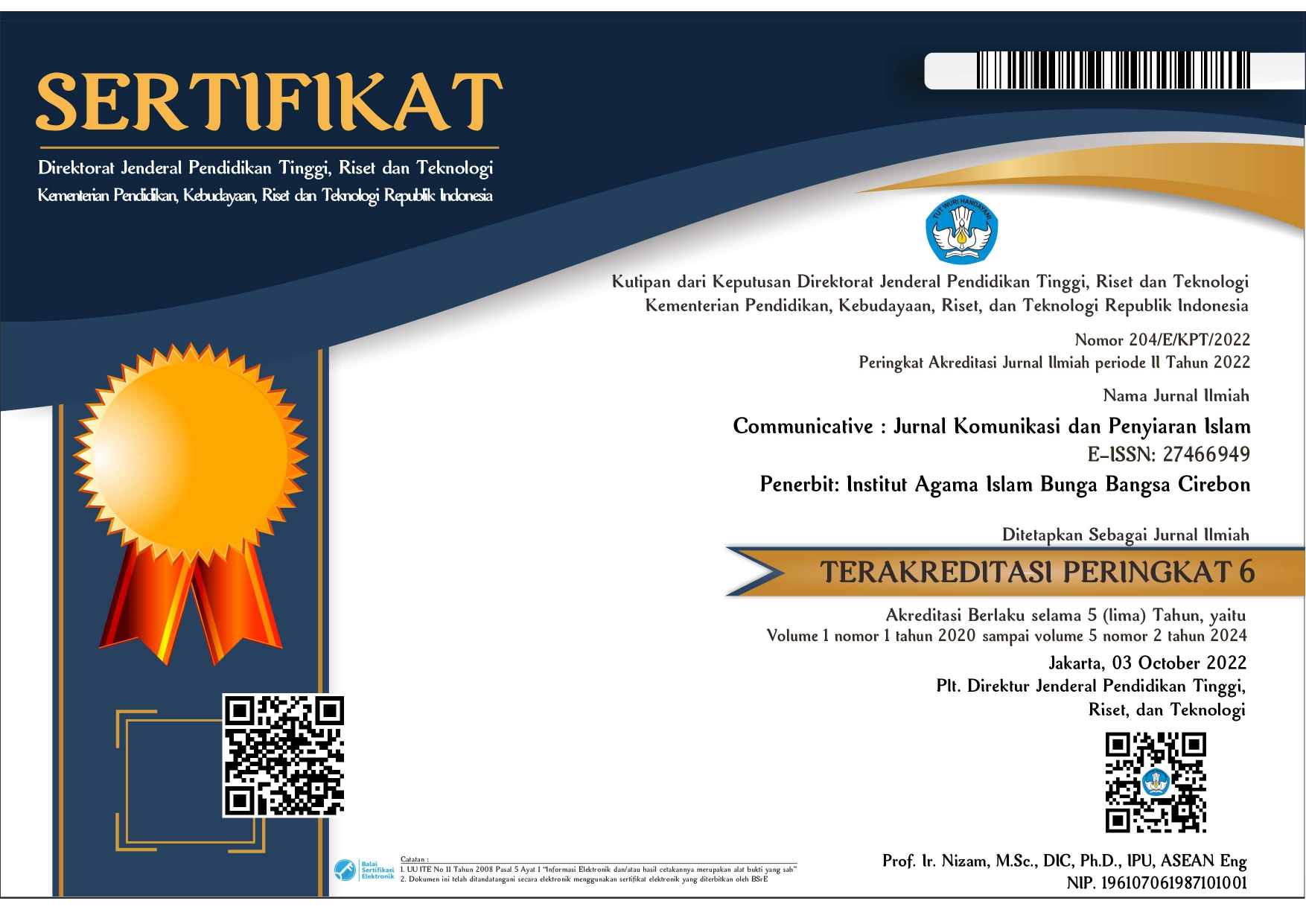DAMPAK STEREOTIP MEDIA SOSIAL X TERHADAP INTERAKSI SOSIAL DAN PERILAKU GENERASI Z
Abstract
Generation Z is a generation that has grown up with digital technology as an integral part of their lives. The main focus of this study is the impact of stereotypes spread through social media on the social interactions and behaviors of this generation. Using a questionnaire-based survey method, data was collected from 100 Generation Z respondents who are active on social media X. The results showed that social media X has a role to play in the social interaction and behavior of this generation. The results showed that social media X has an important role in Generation Z's communication, selfexpression and social awareness. Respondents recognized the benefits of social media in opening up insights into social issues and diversity, although the stereotypes circulating are not always accurate. In addition, social media is also considered capable of countering negative stereotypes through positive content that supports identity and diversity. However, respondents still see in-person interaction as an important element in building deeper relationships. In conclusion, social media X is not only a tool to enhance Generation Z's social connections and confidence, but also plays a role in reducing the negative impact of stereotypes through wise use
Downloads
References
terhadap Pola Komunikasi dan Hubungan Sosial dalam Kalangan Generasi Z.
Sanskara Ilmu Sosial Dan Humaniora, 1(02), 85–94.
https://doi.org/10.58812/sish.v1.i02
Astuti, M. W., Jefri, R., & Novia, L. (2023). The youth’s interpersonal communication
with friends and family: The impacts of social media. International Journal of
Humanities and Innovation (IJHI), 6(1), 11–14.
https://doi.org/10.33750/ijhi.v6i1.171
Baihaqi, A. (2020). Implementasi Digital Marketing pada UD Primadona Jember. In
Repository.Unej.Ac.Id. https://repository.unej.ac.id/handle/123456789/99200
Berger, P. L. & T. L. (1990). Tafsir Sosial atas Kenyataan: Risalah tentang Sosiologi
Pengetahuan. LP3ES.
Deandra Rafiq Daffa, Dave Arthuro, Jovanes Agus Fernanda, & Muh. Bintang Widya
Pratama. (2024). Gen-Z: Eksplorasi Identitas Budaya dan Tantangan Sosial
Dalam Era Digital. Jurnal Insan Pendidikan Dan Sosial Humaniora, 2(2), 169–
183. https://doi.org/10.59581/jipsoshum-widyakarya.v2i2.3112
Efendi, E., Taufiqurrohman, A., Supriadi, T., & Kuswananda, E. (2023). Teori Agenda
Setting. Junral Pendidikan Tambusai, 7(1), 1715–1718.
Gubrium, J. F., Publications, G., Street, S., York, N., Latimer, J., Hosking, D. M., &
Mccoy, L. (n.d.). A Major New Qualitative Research Handbook from Guilford
Edited by James A . Holstein THE. Science And Technology.














